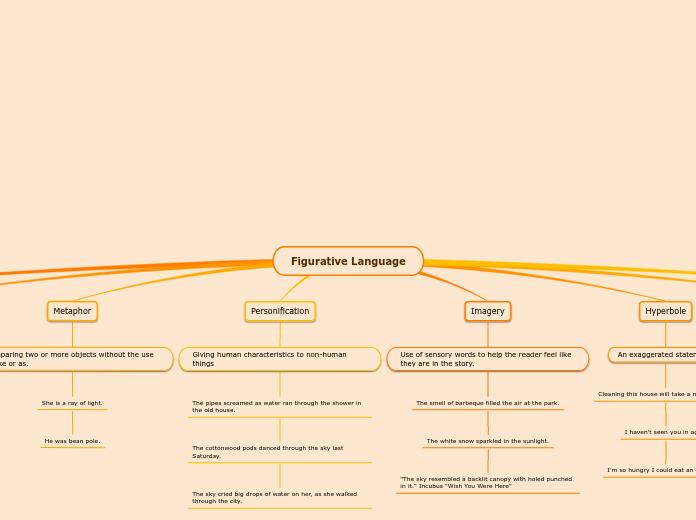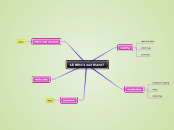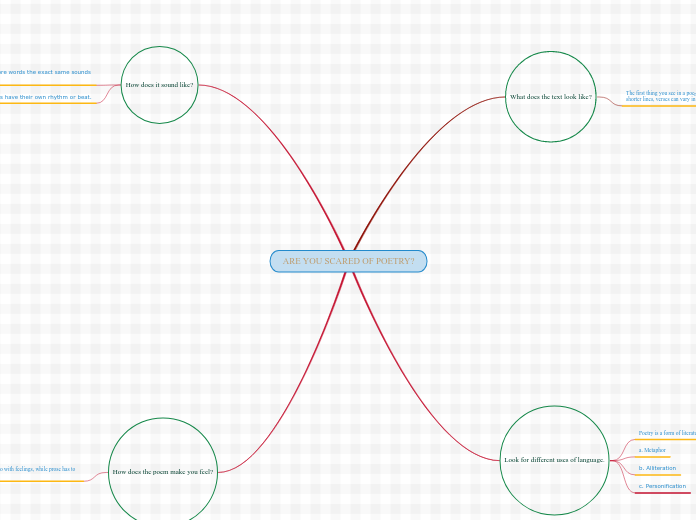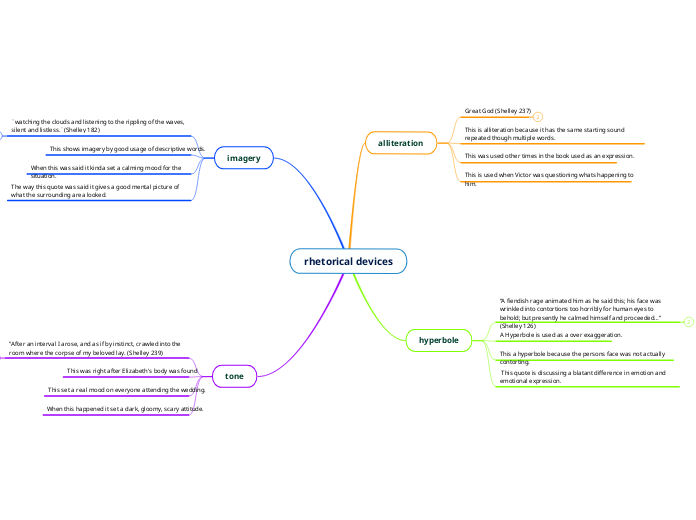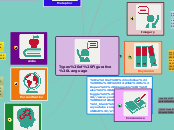av April Winegar för 3 årar sedan
280
Figurative Language
Various forms of figurative language enhance storytelling by adding vividness and depth to the narrative. Onomatopoeia uses words that imitate sounds, creating a more immersive experience, while idioms convey meanings that differ from their literal interpretations, providing cultural and contextual nuances.
